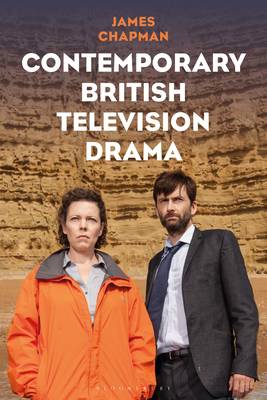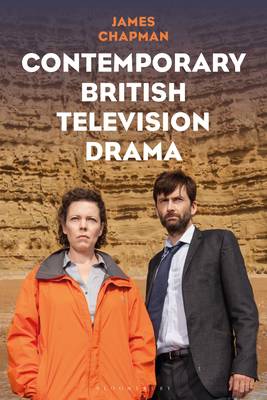
- Afhalen na 1 uur in een winkel met voorraad
- Gratis thuislevering in België vanaf € 30
- Ruim aanbod met 7 miljoen producten
- Afhalen na 1 uur in een winkel met voorraad
- Gratis thuislevering in België vanaf € 30
- Ruim aanbod met 7 miljoen producten
Zoeken
€ 203,95
+ 407 punten
Uitvoering
Omschrijving
The early twenty-first century has seen the emergence of a new style of television drama in Britain that adopts the professional practices and production values of high-end American television while remaining emphatically 'British' in content and outlook. This book analyses eight of these dramas - Spooks, Foyle's War, Hustle, Life on Mars, Ashes to Ashes, Downton Abbey, Sherlock and Broadchurch - which have all proved popular with audiences and in their different ways represent the thematic and formal paradigms of post-millennial drama.
James Chapman locates new British drama in its institutional and economic contexts, considers their critical and popular reception, and analyses their social politics in relation to their representations of class, gender and nationhood. He demonstrates how contemporary drama has mobilised both new and residual elements in re-configuring genres such as the spy series, cop show and costume drama for the cultural tastes of modern audiences. And it concludes that television drama has played an integral role in both the economic and the cultural export of 'Britishness'.Specificaties
Betrokkenen
- Auteur(s):
- Uitgeverij:
Inhoud
- Aantal bladzijden:
- 192
- Taal:
- Engels
Eigenschappen
- Productcode (EAN):
- 9781780765228
- Verschijningsdatum:
- 28/05/2020
- Uitvoering:
- Hardcover
- Formaat:
- Genaaid
- Afmetingen:
- 156 mm x 234 mm
- Gewicht:
- 453 g

Alleen bij Standaard Boekhandel
+ 407 punten op je klantenkaart van Standaard Boekhandel
Beoordelingen
We publiceren alleen reviews die voldoen aan de voorwaarden voor reviews. Bekijk onze voorwaarden voor reviews.








